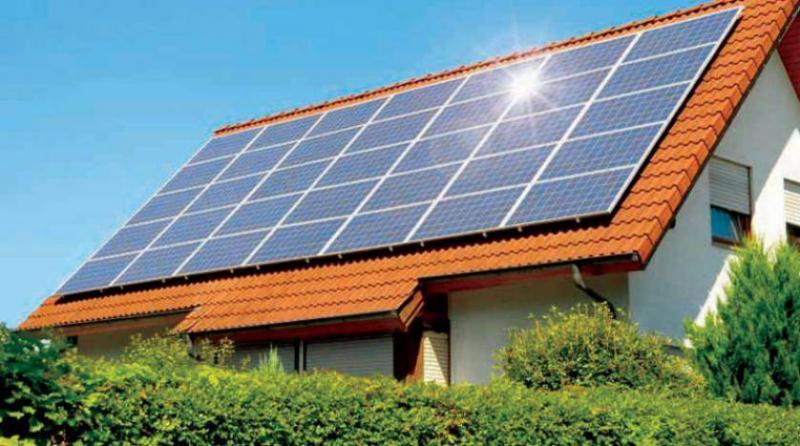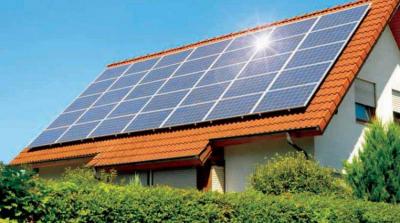Before the collapse, solar energy was known to the Lebanese only on a limited scale, but later, solar panels spread widely to face the crisis of power cuts and rising fuel prices and private generator bills, which have wiped out the salaries of Lebanese citizens. Several factors contributed to the rise of this sector, particularly the urgent need for electricity in the absence of nearly any supply. However, this sector now faces rampant chaos, particularly regarding installation, prices, and the quality of equipment.
The Lebanese people no longer have options but to secure alternatives for electricity, such as solar energy. Despite its high costs that exceed the ability of most Lebanese to afford, it remains the only guaranteed long-term investment. However, one of the main problems facing this sector is the lack of designated and spacious areas for solar panels, such as rooftops. This has driven many residents to exploit small and narrow spaces, like balconies, windows, and even sidewalks. This scene is more common in urban areas. The second problem manifests in the random pricing of solar energy supplies and the fraud in equipment quality.
"Chaos is sweeping the solar energy sector," says energy and electricity policy consultant Jessica Obeid, "and what we see today is just a small scene and the beginning of chaos. Over time, its repercussions will emerge in the market. This is because the main reason for the intense demand for solar energy installation stems from citizens' desire to escape the high bills from private generators due to the lack of state electricity supply and to resort to any cheaper and more guaranteed alternative, rather than because the state has implemented any incentives or support policies for investment in it."
Thus, we can consider this sector as fundamentally built on the principle of chaos, growing amid the failure and mismanagement of state institutions, with no clear planning or policies, rather than through incentives. According to Obeid, it is difficult today for the state to organize it. What is happening now is akin to the days of war when citizens resorted to private generators for electricity; today we see them discarding these generators and replacing them with solar energy.
Obeid emphasized "the necessity of educating citizens about certain aspects concerning the installation of energy systems, especially since these are electrical systems that raise concerns related to public safety. Systems may catch fire, or batteries may explode if they do not meet standards. All systems and equipment are now found in homes for generating electricity, converting from direct to alternating current, and storage, which requires implementing all necessary protections and informing citizens on how to use them, ensuring the sturdiness of the installation of this equipment and its ability to withstand storms so they do not become dislodged in winter."
Additionally, the lack of regulation and consumer protection in Lebanon is a concern. Solar panels are supposed to have a certificate of conformity with quality standards, but what is happening today in Lebanon is the opposite, where all panels classified as non-compliant with standards in other countries are sold. Instead of these panels lasting about 25 years, they barely reach 5 years, thus urging citizens to be cautious to avoid falling victim to self-proclaimed experts.
According to Ghassan Baydoun, former Director General of Investment at the Ministry of Energy and Water, "The available rooftop spaces are limited and small when divided among the number of apartments in each building. Therefore, residents of the same building must agree on divisions and cooperate; otherwise, some will resort to placing panels on windows and balconies where rooftops do not accommodate all apartments, which will affect the efficiency of energy production. This phenomenon is widespread in cities, while in villages, it is almost nonexistent due to the large available spaces, such as rooftops and gardens, along with the goodwill and cooperation among neighbors and relatives. Some municipalities are also investing in solar energy to distribute it to citizens."
"The high demand for solar energy has led to an increase in business volume and job opportunities for many engineers, workers, and specialists in the field of manufacturing," says Baydoun. "The importance lies not only in increasing job opportunities but also in reducing the payment of exorbitant generator bills and relieving citizens from the tyranny and brutality of generator owners, in addition to ensuring electricity at all times and in a guaranteed manner. In the absence of the state, citizens should rely only on themselves."
Baydoun concludes by stating, "The government was supposed to conduct awareness campaigns about how to use this energy for electricity production and inform consumers of the health and environmental conditions for its use, its laws, and how to install its equipment when it had regulatory authority. Today, with the absence of the state, municipalities must take over this responsibility, in addition to standards and specifications institutions."




